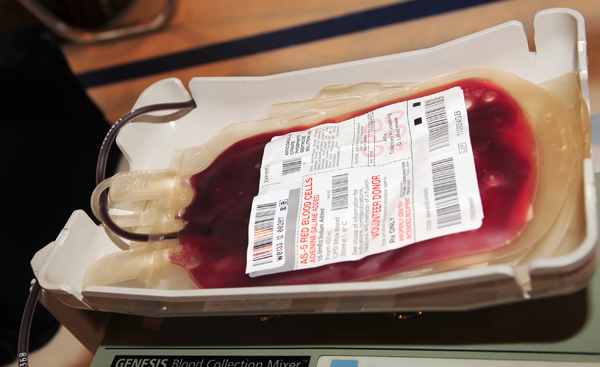According to a press release from the US Food and Drug Administration (FDA), the agency has granted accelerated approval for Boehringer Ingelheim’s Praxbind (idarucizumab) – a specific reversal agent for the company’s anticoagulant, Pradaxa (dabigatran). The drug has been approved for use in emergency situations when it may be necessary to reverse the blood thinner’s effects.
“The anticoagulant effects of Pradaxa are important and life-saving for some patients, but there are situations where reversal of the drug’s effects is medically necessary. Today’s approval offers the medical community an important tool for managing patients taking Pradaxa in emergency or life-threatening situations when bleeding can’t be controlled,” said Dr. Richard Pazdur, director of the Office of Hematology and Oncology Products in the FDA’s Center for Drug Evaluation and Research.
Pradaxa was first approved by the FDA 5 years ago, and is used to prevent blood clotting in patients with atrial fibrillation, as well as those with deep vein thrombosis and pulmonary embolism. Intravenous injection of Praxbind reverses the blood thinner effects of Pradaxa, and it is the first FDA-approved drug to do so.
According to Professor Jörg Kreuzer, Vice President Medicine, Therapeutic Area Cardiovascular, Boehringer Ingelheim, “We are very pleased to offer Praxbind, the first specific reversal agent for a novel oral anticoagulant, now approved by the FDA. With this approval, Boehringer Ingelheim is again leading the evolution of anticoagulation care, as we did with the introduction of Pradaxa. While we anticipate that Praxbind will be rarely used in clinical practice, the availability of a specific reversal agent has the potential to give physicians and patients added confidence in choosing Pradaxa.”
Three clinical trials involving 283 healthy individuals, were conducted in an effort to prove the safety and effectiveness of the reversal agent. A subset of the trail participants – who were taking Pradaxa – were administered Praxbind, resulting in an immediate decrease in the amount of Pradaxa found in the individuals plasma, with a prolonged affect over a 24 hour period.
An additional trial involving 123 patients taking Pradaxa was conducted, and the effects of Praxbind were studied after it was administered due to the necessity to perform emergency surgery, or uncontrolled bleeding. Eighty nine percent of patients in this trial saw a full reversal of the effects of Pradaxa within 4 hours of when Praxbind was administered.
While Praxbind is useful in emergency situations, the label of the product recommend that patients resume taking Pradaxa as soon as is medically possible, to avoid prolonged exposure to a risk of blood clotting and stroke. The accelerated approval of Praxbind will provide patients access to this promising new drug however, Boehringer Ingelheim will need to provide more data to the FDA in order to receive full approval for the pharmaceutical.
Sources:
- FDA approves Praxbind, the first reversal agent for the anticoagulant Pradaxa – http://www.fda.gov/NewsEvents/Newsroom/PressAnnouncements/ucm467300.htm
- FDA Approves New Reversal Agent for Pradaxa – http://www.dddmag.com/news/2015/10/fda-approves-new-reversal-agent-pradaxa












Join or login to leave a comment
JOIN LOGIN